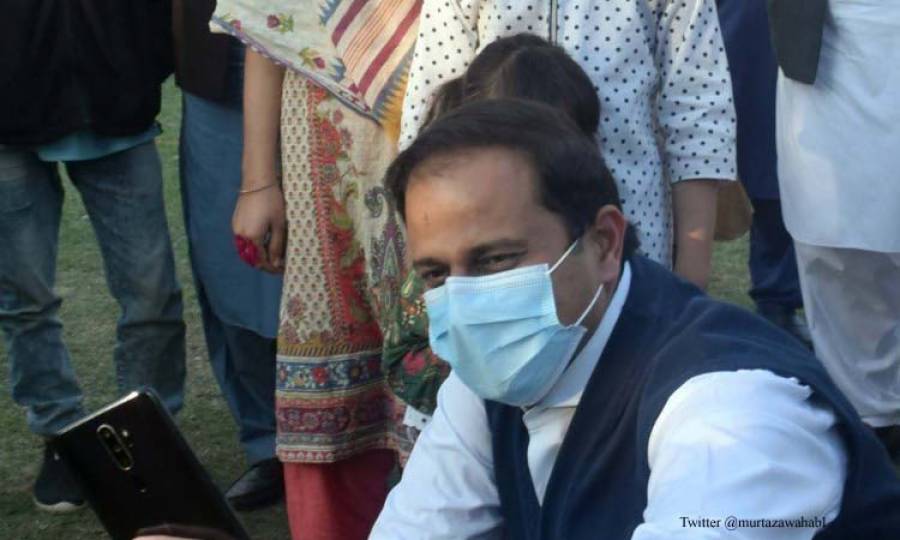COVID-19 cases spreading swiftly in Sindh says, Murtaza

KARACHI: Recently, Barrister Murtaza Wahab, Administrator, Karachi, Sindh government's spokesman and Advisor of Chief Minister, Sindh, on law, expressed concerns regarding COVID-19.
He articulated that rapid transmission of COVID-19 in Sindh jumped to 19 per cent from one per cent during the past 24 hours.
"The ratio of COVID-19 positive cases in Karachi has reached 38 per cent out of total tests conducted. Citizens should get vaccinated and wear masks. Indoor celebrations will be banned from January 24," the Administrator expressed these views while addressing at Sindh Assembly. The Administrator added that the economic situation was deteriorating owing to the mini-budget.
"The federal government has issued health cards to reward its ATMs. The people of Pakistan are struggling with inflation," he expressed.
He stated that due to the spread of COVID-19, the pressure on hospitals had also started increasing. As per him, people had stopped wearing masks in their daily lives, and SOPs were not being implemented, citing it as a reason for the spread of the virus.
He enlightened that "Due to the change in the situation, the NCOC has made some decisions and urged that those who have been vaccinated should take a booster shot for which the vaccine is obtainable." Further, he appealed to the people to wear masks and guard each other against COVID-19 at social events and weddings.
He communicated that as soon as the mini-budget was approved, the electricity prices went up. After the mini-budget, the prices of medicines went up by 20 per cent, which he said was a great tragedy.
"People in Sindh and other parts of the country are living a tough life due to inflation, and all this is due to the incompetence of the federal government," he added.
He remarked that the people of Pakistan wanted to get rid of the federal government, and Bilawal Zardari would oust the government.
The Administrator, Karachi, further stated that the federal government did not provide electricity in summer and gas in winter, adding that prices of medicines, electricity and petrol had been increased as soon as the mini-budget was passed.
Pharmaceutical companies would collect money from consumers for importing medicines and raw materials.
He postulated that Imran Khan, Prime Minister of Pakistan, calls himself an environmental champion even though there were problems of electricity and gas in the whole country, including Sindh, and the people had been exploited.
He further added that treatment facilities in Sindh were better than other provinces. He said, "Today, people from other provinces come to Sindh for free and good treatment, which proves our claim".
He articulated that the purpose of health cards by the federal government was to reward those friends who had their own hospitals as infectious diseases and accidents were not being treated under health cards. People ask about the purpose of health care, as it will not cater to accidents.
He said that Karachi's three major political parties had gathered only a few hundred people and staged sit-ins and rallies.
Murtaza Wahab said that the citizens' real problems had been left behind. Compared to Punjab and Khyber Pakhtunkhwa, he highlighted that the Sindh government had developed a better and more comprehensive local government law to address public issues. He spotlighted that the parliamentary style of government had been mentioned in the constitution.
Advertisement
Trending
Popular
Hair loss: Discovery uncovers key stem cells that could reverse ...
-
Broccoli sprout compound may help lower ...
11:31 AM, 25 Feb, 2025 -
Gas Pain vs. Heart Attack: How to tell ...
09:00 PM, 22 Feb, 2025 -
Coconut oil supplement shows promise ...
08:00 PM, 20 Feb, 2025 -
Normal vitamin B12 levels may still ...
05:00 PM, 19 Feb, 2025



